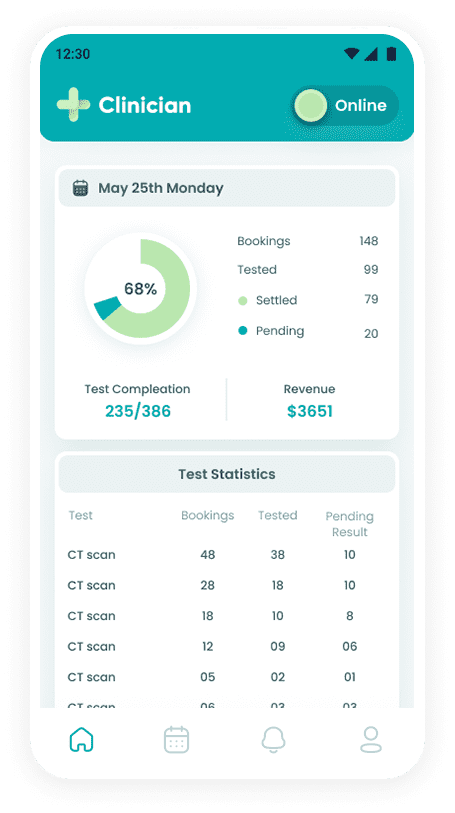In today's digital age, healthcare practices are looking for ways to improve patient care, reduce costs, and increase efficiency. One way to achieve these goals is by implementing a clinic app. A clinic app is a mobile application that allows healthcare providers to manage patient appointments, medical records, and communication with patients. In this blog, we will discuss five benefits of implementing a clinic app for your healthcare practice.

- Improved Patient Engagement and Satisfaction
Clinic apps allow patients to schedule appointments, view their medical records, and communicate with their healthcare provider easily. By providing patients with more control over their healthcare, clinic apps can improve patient engagement and satisfaction. Patients can access their medical information from anywhere, anytime, and receive real-time updates on their treatment progress, which can help them feel more involved in their care.
- Enhanced Communication between Patients and Healthcare Providers
Clinic apps provide a platform for patients to communicate with their healthcare providers directly. Patients can ask questions, request refills, and receive advice from their providers via secure messaging features. This communication can help healthcare providers address patient concerns quickly, reducing the risk of complications and improving patient outcomes.
- Increased Efficiency and Productivity
Clinic apps can automate many administrative tasks, such as appointment scheduling and record-keeping. By automating these tasks, healthcare providers can reduce the workload of their staff, which can increase efficiency and productivity. Clinic apps can also help healthcare providers manage their workflow better, reducing wait times for patients and improving patient satisfaction.
- Cost Reduction
Clinic apps can help healthcare providers reduce costs by automating administrative tasks and reducing the need for paper-based systems. By reducing the workload of administrative staff, healthcare providers can reduce the number of staff required to run the clinic. Additionally, clinic apps can reduce the number of missed appointments and late cancellations, which can result in lost revenue for healthcare practices.
- Improved Patient Outcomes
Clinic apps can help healthcare providers improve patient outcomes by facilitating better communication between patients and healthcare providers. With real-time updates on their treatment progress, patients can take a more active role in their healthcare, leading to better outcomes. Additionally, clinic apps can reduce the risk of medication errors, ensuring patients receive the right treatment at the right time.
Conclusion
Implementing a clinic app can offer numerous benefits for healthcare providers and patients alike. By improving patient engagement, enhancing communication, increasing efficiency, reducing costs, and improving patient outcomes, clinic apps can help healthcare practices provide high-quality care to their patients while reducing the workload of their staff. If you're a healthcare provider looking to improve your practice's efficiency and patient care, implementing a clinic app may be an excellent solution for you.
